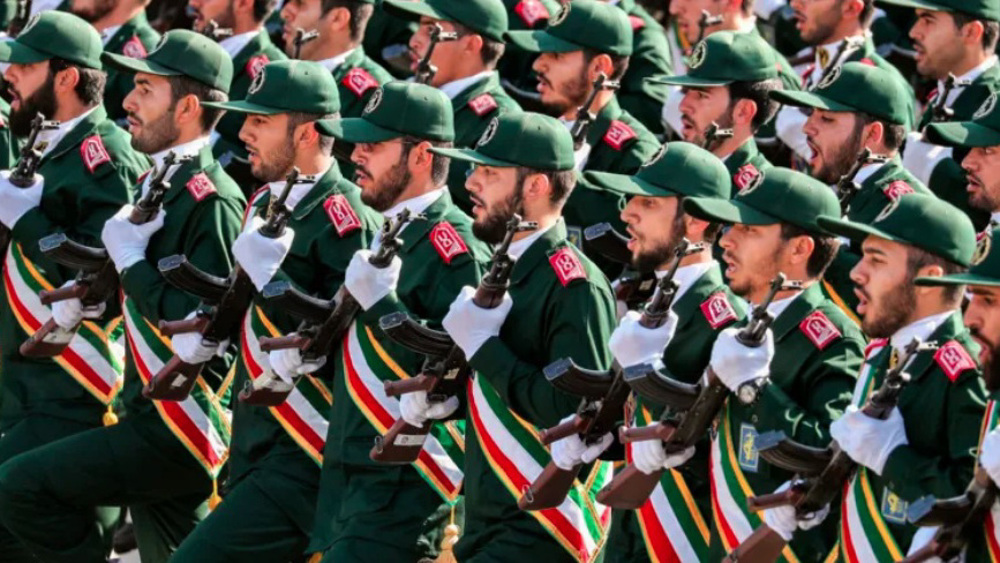Russia's missile deployment response to NATO expansion: Analyst
Russia’s planned deployment of its S-400 air missile defense system along with the Iskander ballistic missile system in Kaliningrad, near the border with NATO members Lithuania and Poland, has drawn criticism from the United States. Moscow has rejected Washington’s allegations that the move would destabilize security in Europe, arguing that it is in fact the US which is endangering regional security by saturating Europe with arms and missiles. In this edition of our program 'The Debate,' we have spoken to Mark Sleboda, international relations and security analyst, as well as Ian Williams, senior analyst at Foreign Policy in Focus, to shed more light on the latest tensions between Russia and NATO.
Mark Sleboda said the planned deployment of missiles in Kaliningrad is a natural response to NATO threatening Russia’s national security by expanding eastward towards the country’s borders.
“Russia has warned, for years, that if the US pursued - after unilaterally withdrawing from the [Anti]-Ballistic Missile Defense Treaty - to ring Russia with anti-ballistic missile defense systems, which are a threat to its strategic deterrent and thus to the global thermonuclear strategic balance of power - known as mutually assured destruction, it would unfortunately have to take pragmatic, cold-blooded and measured responses, almost entirely defensive in nature to ensure its national defense in response to a NATO expansion and militarization of Eastern Europe,” he said.
“This is exactly what [Russian President Vladimir] Putin promised years ago and this is exactly what they have done now that NATO has turned online its ballistic missile defense arsenal and started massing NATO, US and German troops on Russia’s border for the first time since World War II,” he added.
Elsewhere in his remarks, the analyst argued that under President Donald Trump there is a possibility for easing tensions and improving relations not only with Russia, but also in other areas including Syria, Ukraine and the South China Sea.
“Trump has from the very beginning been flying in the face of the US foreign policy establishment, both of his own party and of the Democratic Party. [He has] iterated a realist foreign policy prescription, seeking to work in a multi-polar way with other great powers, rejecting the expensive and counterproductive US military efforts to force a hegemony around the world, the euphemism of democracy promotion that we have seen used to destabilize and stage revolutions in numerous countries,” he stated.
However, he said, Democratic presidential candidate Hillary Clinton would have continued and escalated the policies of President Barack Obama, adding that her call for the imposition of a no-fly zone over Syria would have led directly to war with Russia.
Sleboda further expressed hope that the threat of a World War III would be averted under Trump’s presidency and his policies could potentially lead to a “détente” and a “loosening of tensions” with Russia.
Meanwhile, the other panelist on Press TV’s program, Ian Williams, opined that there is a lot of “idiotic posturing” from both the United States and Russia, warning that any firing of these missiles could start World War III.
“This is posturing of the worst kind because it gives the warmongers on each side the excuse to ramp up the odds. What Putin is doing is almost as stupid as what the Americans have been doing for 20 years, alienating Moscow and its policymakers,” he said.
The analyst further noted that “Russia’s occupation of Crimea has given its neighbors good reason to be a little worried,” concluding that Moscow is sending the wrong signal to everybody.
He went on to say that the acquisition of territory by force is illegal under the UN Charter and that “Moscow has gone wrong with regard to Crimea.”
Williams further expressed doubt that the US-Russia ties would be normalized under Trump, arguing that the US president-elect has not shown signs of being a “great geopolitical thinker.”
“Donald Trump is an ideological vacuum and that vacuum is being filled with some of the nastiest, creepiest neo-cons and right-wingers in America at the moment and they might well influence him in other directions, which is why I think that the moving of missiles into Kaliningrad is ill-advised, because it strengthens those people,” he said.
The US-led military alliance of NATO has been deploying troops and equipment close to Russia’s borders since the severance of ties in April 2014. NATO suspended ties with Moscow after the Crimean Peninsula was integrated into the Russian Federation following a referendum in March 2014.
The United States and its European allies also accuse Moscow of having a hand in the conflict in eastern Ukraine and have imposed a number of sanctions against Russian and pro-Russia figures. The Kremlin, however, rejects the allegations.
As Iran, Russia conclude drill, ex-US Army officer warns of surprises
VIDEO | Press TV's news headlines
UN investigators: ‘Hallmarks of genocide’ found in Sudan’s El Fasher
UN rapporteur Albanese: Israel’s West Bank land grab 'will consolidate annexation'
Three Palestinians killed in Israeli raids on Gaza on first day of Ramadan
Hundreds of Dutch nationals served in Israeli military amid Gaza genocide
‘Playing with fire’: Russia sternly warns against any attack on Iran
VIDEO | Iran, Russia naval forces rescue hijacked ship in mock operation during naval drills














 This makes it easy to access the Press TV website
This makes it easy to access the Press TV website